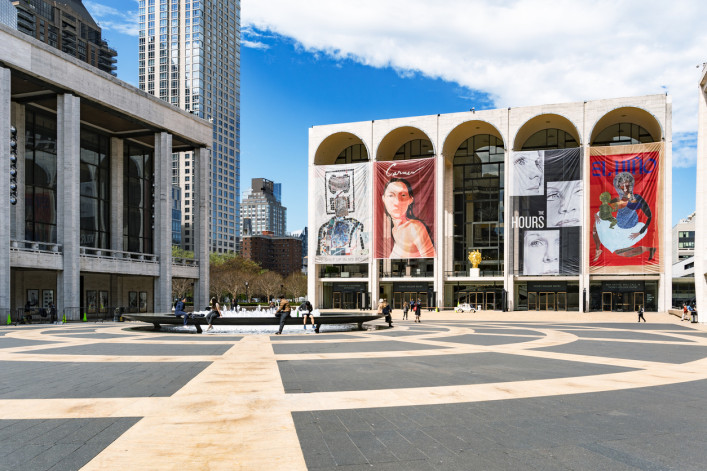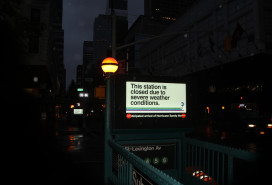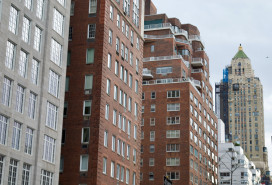We're retiring soon and planning on moving to NYC. Should we rent or buy?
- Renting provides flexibility but retirees have a harder time qualifying for a new lease in NYC
- If you plan on staying put for the next 10 years, buying and paying all cash is the better option

The Upper West Side provides easy access to cultural gems like the Metropolitan Opera House at Lincoln Center.
iStock
We are a couple approaching retirement age. We are selling our house in the suburbs and thinking of retiring in New York City so we can indulge our love of theater and art. Would we be better off buying or renting in NYC? What neighborhoods do you recommend for retirees in NYC?
The NYC rent vs. buy dilemma is as timeless as it is vexing, and as soon-to-be retirees, you have some constraints that limit your options. These constraints will likely help tilt your decision toward buying, according to our experts.
But first a comment about choosing to spend your retirement years in NYC: You’ll be in good company among seniors who enjoy the benefits of living close to many cultural institutions, restaurants, shopping, and top hospitals. Plus you won’t have to drive.
As longtime contributor Marjorie Cohen, 81, told Brick about her life in NYC: "I'm out every night doing different things—in the past month I've been to the ballet, theater, lectures, films, and opera. In fact, I have to force myself to stay home one night each week.
“And I'm a big fan of the subway. I feel completely safe when I'm on it and imagine: You can get from the Upper West Side to Coney Island for just $1.45!” she said. That’s a reduced fare, which is available for riders who are 65 or older or riders who have qualifying disabilities.
(Want to read some profiles of seniors who retired to NYC? Check out this article about a Denver couple who headed to the Upper West Side; and this piece about a pair of twins, former vice presidents at JP Morgan, who sold their home in New Jersey and bought a co-op on the Upper West Side.)
Should you rent or should you buy?
Renting has some advantages: It’s less of a commitment and gives you the ability to check out different neighborhoods, if you’re willing to pack up and move instead of renewing your lease. And if you’re willing to head beyond Manhattan to the outer boroughs, you will get more bang for the buck, including more amenities, at new construction rentals.
Renting in NYC is not cheap: Rents are stuck at record highs (the median rent for a Manhattan apartment was $4,250 in April, according to the Elliman Report), and you will face stiff competition from other renters. Plus, meeting a NYC landlord's standard annual income requirement of 40 times the monthly rent is even more challenging when you are no longer working, but there are some workarounds.
Adrian Savino, director of leasing and business development at Living New York, previously told Brick that retirees can submit a CPA letter to a landlord in lieu of an employment letter. And they can present investment statements or bank statements that show liquidity, as well as tax returns from previous years.
Renting offers less stability, which is probably not your ideal scenario right now.
As Adjina Dekidjiev, a broker at Coldwell Banker Warburg, pointed out, renting a market-rate apartment means you face a lease renewal every year (or two years, depending on your lease terms), which could come with an unwelcome rent increase. There’s also the chance a market-rate landlord may choose not to renew your lease.
(Some but not all market-rate renters just gained new protections from rent hikes of more than 8.82 percent, as well as eviction, thanks to New York’s newly passed Good Cause eviction law.)
For these reasons, you may be better off buying—that’s if you plan on staying put for 10 years or so.
“Purchasing makes more sense; it offers stability and equity,” Dekidjiev said. Even though buyers face monthly costs (you pay maintenance if you live in a co-op; common charges and taxes if you own a condo), you benefit from a mortgage interest deduction. Rental costs are not tax deductible, she noted.
Where should you buy in NYC?
Since you expect to clear about $800,000 to $900,000 on the sale of your suburban house, you could buy a one-bedroom co-op on the Upper West Side for $700,000 to $850,000, depending on amenities, the condition of the apartment, and maintenance, Dekidjiev said.
“Look for a building where the maintenance is reasonable, and prepare for additional monthly costs like repairs and assessments for capital improvements.
“I would recommend paying all cash if possible; sellers tend to prefer all cash offers and a quick close over deals with financing,” Dekidjiev said.
She also suggested apartment hunting near Columbus Circle or the Upper West Side, where many of the streets are landmarked and housing is a mix of brownstones, prewar and post-war buildings.
There you’ll be able to take crosstown buses and three train lines, plus you’ll find many restaurants, cultural destinations, and shopping—plus access to Riverside Park and Central Park. Lincoln Center and Broadway theaters are nearby and you can get to art galleries in Chelsea and the Whitney Museum of American Art—to name just a few of NYC's cultural gems—via subway or bus, so you can make the most of your passion for the arts.
Trouble at home? Get your NYC apartment-dweller questions answered by an expert. Send your questions to experts@brickunderground.com.



























